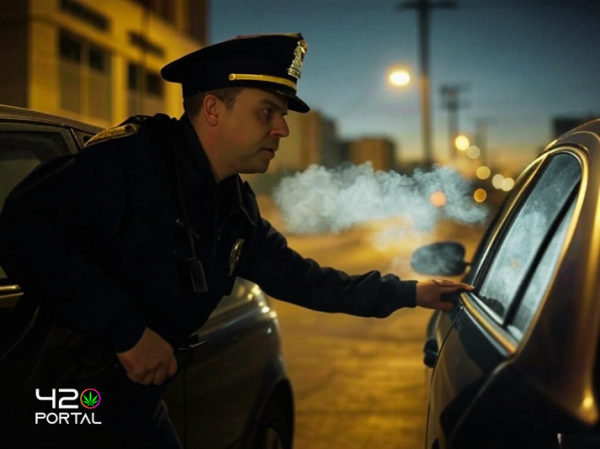Michigan Supreme Court Limits Vehicle Searches Based on Marijuana Odor Alone

04/11/2025
In a landmark decision last week, the Michigan Supreme Court ruled that the smell of marijuana alone is no longer sufficient grounds for police to search a vehicle without a warrant. This 5-1 ruling marks a significant shift in how law enforcement must approach probable cause in the state, reflecting the evolving legal landscape since Michigan voters legalized recreational marijuana for adults over 21 in 2018. The court’s majority opinion emphasized that the odor of cannabis does not inherently indicate illegal activity, given its lawful use and possession under state law.
The case stemmed from a 2020 incident in Detroit, where police searched a man’s car based solely on detecting marijuana odor, leading to the discovery of firearms and subsequent charges. The court overturned these charges, arguing that the smell could just as easily suggest legal possession or recent lawful use—perhaps even exposure to someone else’s marijuana—rather than criminal behavior. This reasoning aligns with the reality that marijuana’s legal status has diluted its previous association with illegality, at least in the eyes of Michigan law.
Justice Brian Zahra dissented, advocating for a broader interpretation of probable cause and suggesting the case be sent back to lower courts to evaluate additional evidence. However, the majority held firm, reinforcing that warrantless searches require more than a whiff of cannabis to justify intrusion. This decision echoes a similar ruling by the Illinois Supreme Court in 2024, where recreational marijuana’s legalization prompted a reevaluation of search protocols.
For Michigan residents, this ruling strengthens protections against unreasonable searches, though it doesn’t eliminate the smell of marijuana as a factor entirely—it simply can’t stand alone. Police will now need corroborating evidence, like visible contraband or suspicious behavior, to proceed lawfully.
Critics may argue it complicates law enforcement efforts, but supporters see it as a necessary adaptation to a post-prohibition era, balancing individual rights with public safety. As marijuana laws continue to evolve nationwide, Michigan’s highest court has set a precedent that could influence other states navigating this hazy terrain.
Reference
The case stemmed from a 2020 incident in Detroit, where police searched a man’s car based solely on detecting marijuana odor, leading to the discovery of firearms and subsequent charges. The court overturned these charges, arguing that the smell could just as easily suggest legal possession or recent lawful use—perhaps even exposure to someone else’s marijuana—rather than criminal behavior. This reasoning aligns with the reality that marijuana’s legal status has diluted its previous association with illegality, at least in the eyes of Michigan law.
Justice Brian Zahra dissented, advocating for a broader interpretation of probable cause and suggesting the case be sent back to lower courts to evaluate additional evidence. However, the majority held firm, reinforcing that warrantless searches require more than a whiff of cannabis to justify intrusion. This decision echoes a similar ruling by the Illinois Supreme Court in 2024, where recreational marijuana’s legalization prompted a reevaluation of search protocols.
For Michigan residents, this ruling strengthens protections against unreasonable searches, though it doesn’t eliminate the smell of marijuana as a factor entirely—it simply can’t stand alone. Police will now need corroborating evidence, like visible contraband or suspicious behavior, to proceed lawfully.
Critics may argue it complicates law enforcement efforts, but supporters see it as a necessary adaptation to a post-prohibition era, balancing individual rights with public safety. As marijuana laws continue to evolve nationwide, Michigan’s highest court has set a precedent that could influence other states navigating this hazy terrain.
Reference







